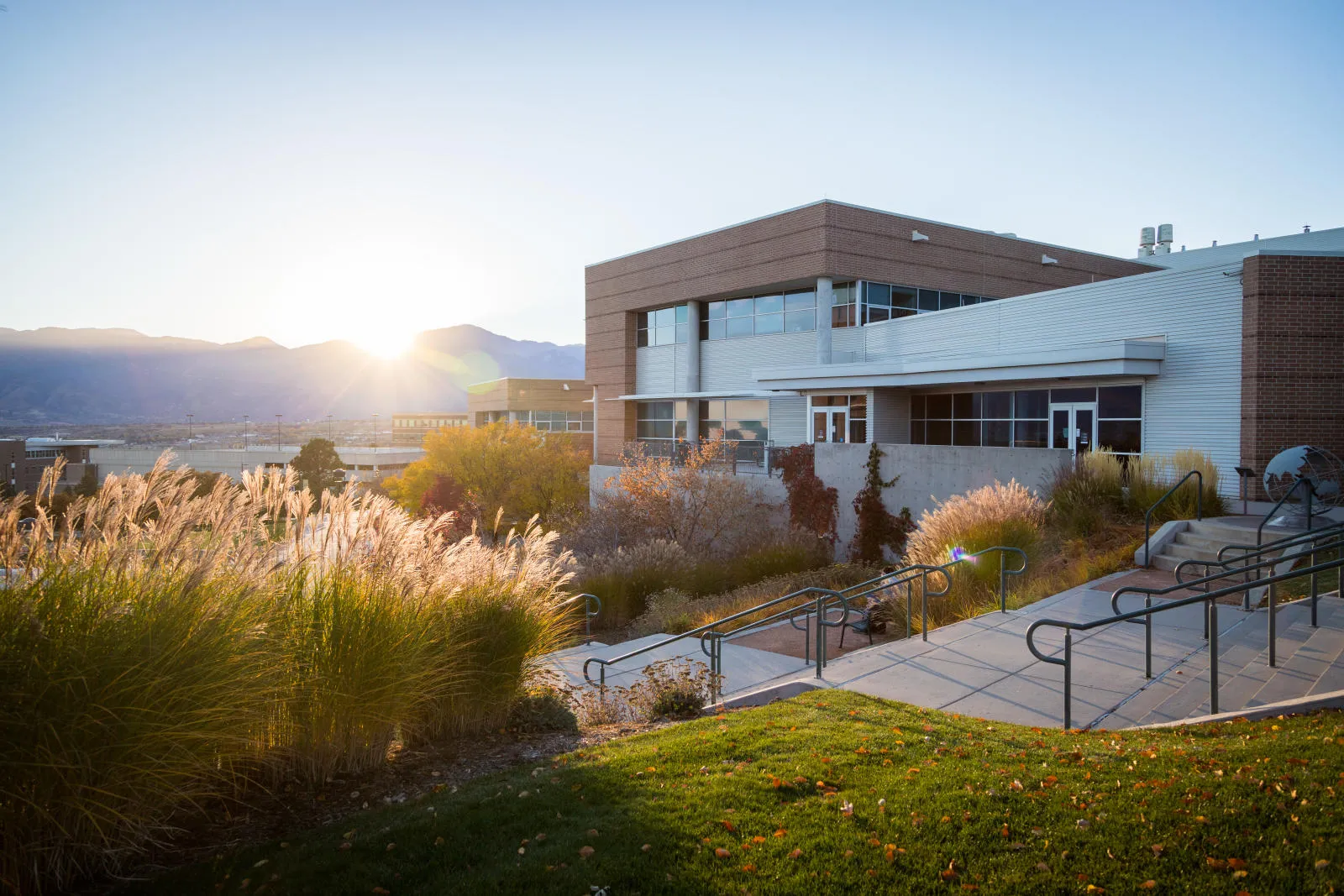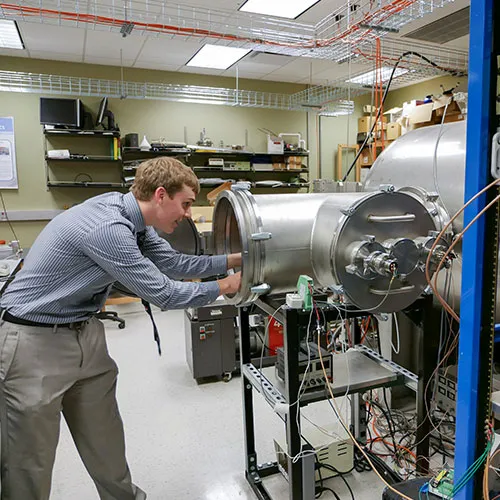
Master of Science in Aerospace Engineering
About the Aerospace Engineering MS

The Department of Mechanical and Aerospace Engineering offers a program leading to the Master of Science in Mechanical Engineering (MSME). This research-oriented academic degree is appropriate either as a terminal degree or in preparation for doctoral studies in mechanical and aerospace engineering.
The MSME program consists of coursework and research in advanced mechanical and aerospace engineering topics allowing emphasis in solid mechanics, thermal/fluid systems, or dynamics and controls. Graduate students can participate in on-going interdisciplinary research programs through independent study projects or as research assistants on sponsored research projects. Courses at the graduate level are often offered in the late afternoon or evening to enable students from local industry to complete their studies.
Additional Resources
- Prepare the student to perform independent research in their field of specialization
- Provide students with an understanding of the advanced engineering tools and concepts that apply to their field of specialization, with particular emphasis on the mathematical development of those tools
- Prepare students to practice engineering at an advanced level
- Prepare students to pursue doctoral studies in mechanical/aerospace engineering
- Develop student's communication skills and professionalism
During the first semester of enrollment, each student will prepare a Plan of Study, which must be approved by the student's graduate advisor and the MAE Graduate Affairs Committee. The plan will specify the student's selected area of interest and list courses related to the area. Any subsequent changes to the Plan of Study must be approved by the student's advisor and the MAE Graduate Affairs Committee.
Students will choose between Plan I (Thesis Option), or Plan II (Course Option):
- Plan I - At least twenty-four credit hours of graduate coursework and up to six hours of thesis credit is necessary to satisfy the thirty credit hour requirement. The thesis credit will be provided for research, preparation of the thesis document, and defense of the thesis (which is required for completion of the program).
- Plan II - Thirty credit hours of graduate coursework.
Math Area
All students must complete a minimum of two classes (6cr) in Math. Engineering Analysis I and II are encouraged for the first two semesters of the MSAE program, but the well-prepared student (with a recent BS in ME or AE) can choose any two of the following courses:
- Engineering Analysis I
- Engineering Analysis II
- Numerical Methods
- Machine Learning for Engineers
- Any graduate course with a MATH designation
Aerospace Engineering Courses
Both plans will require completion of a minimum of at least five classes (15cr) specifically designated as Aerospace Topics courses (denoted below by *). Up to two classes (6 cr) from the Space Operations program (SPCE prefix) may be used for the Aerospace Topics requirement with approval by the student's advisor and Chair of the MAE Graduate Affairs Committee. Up to 6 thesis credits on a topic in aerospace engineering can count toward the Aerospace Topics requirement with approval by the student's advisor and Chair of the MAE Graduate Affairs Committee.
Dynamics and Controls
- Astrodynamics
- Advanced Astrodynamics
- Trajectory Optimization
- Spacecraft Attitude Dynamics & Controls
Thermal Fluid Sciences
- Rocket Propulsion
- Radiation
- Space Environment
- Compressible Flow